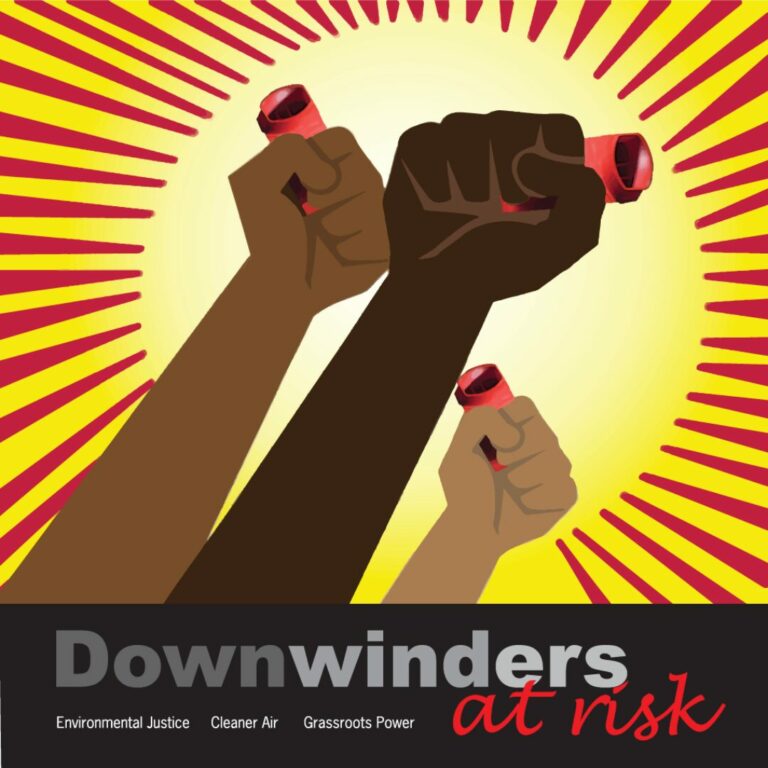
Cindy Hua is a board member of Downwinders at Risk, a community-organizing nonprofit that works to improve air quality in Dallas, Texas. When Hua first joined Downwinders in 2018, she found a group of progressively like-minded people who were passionate about environmental justice. She now chairs the Particulate Matter Education Committee while pursuing her PhD at Southern Methodist University. ESAL interviewed Hua about Downwinders’ accomplishments and her own journey into local activism.
LZ: What is Downwinders at Risk?
Hua: Downwinders is a grassroots environmental justice nonprofit in Dallas, where we work to empower residents through community science and civic engagement. We are a small but passionate group that believes cleaner air is an avenue toward better democracy. We teach people how to engage in civic processes. It's not just going to the polls. It’s navigating the city's website to find meetings and to have your voice heard at City Hall, a lot of nitty gritty stuff. Even for a person with a college degree, that level of digging requires a lot of motivation.
LZ: What is your background?
I have a meandering background. I was a biology major in undergrad and was on the pre-med track for a long time, but it wasn’t in my heart. I took a few environmental science courses, and after graduating, I taught for a few years at our local science museum in Dallas. That’s where I saw the interconnectedness of different STEM fields.
I went back to school for my master's in sustainability and urban development, which was inherently interdisciplinary. At that point I was already volunteering for Downwinders at Risk. I did my thesis on how teaching children to build low-cost air monitors for their school impacted their sense of empowerment. I’m really interested in science education and how it connects to learning about your own backyard. Now, I’m doing my PhD, and I keep digging deeper and deeper!
LZ: How did you first get involved in the organization?
Hua: Interesting story. During my master's studies, my advisor picked up the Dallas Morning News and was like, “Hey, have you heard about this group?” She showed me an article about Shingle Mountain and how Downwinders was trying to expand awareness around this environmental hazard. Shingle Mountain was an illegal dump that was essentially created overnight in 2018 by a roofing recycling company. Shingles were dumped next to a black residential neighborhood, Floral Farms. I went to a few Downwinders workshops about air quality and it took off from there. I was immediately roped in.

LZ: What happened to Shingle Mountain?
Hua: We advocated for the removal of Shingle Mountain for three years. Nothing happened until 2020 when the city of Dallas received negative national attention about what they had perpetuated by inaction. Alongside neighborhood leaders, we finally got rid of Shingle Mountain and now there’s going to be a park there.
LZ: What is your role in Downwinders?
Hua: Some days I buy the snacks, and other days I go out and install air monitors. My role varies drastically, but officially I chair the Particulate Matter Education Committee. I’m in charge of Purple Air monitors that we purchase and deploy in local neighborhoods. Then we maintain and change them out every two years.
I host outreach sessions to talk about air quality and how the EPA measures it. I also provide information on Shared Air DFW, our regional air monitoring network that works in partnership with Dallas County and University of Texas, Dallas to deploy sophisticated EPA-grade particulate matter monitors. We help residents learn about the quality of air they're breathing using live data on a map.
LZ: How does Downwinders operate as an organization?
Hua: At its heart, Downwinders is a community organizing group. We rely heavily on the relationships we build with residents, who come to us when they have nowhere else to turn. Our organizers work with residents to figure out a game plan and to make sure the city hears their concerns and wishes. Every neighborhood has a different vision.
Downwinders is almost like a startup. I attend community groups to talk with residents, but I also help with media and graphics when needed. We’ve figured out the ins-and-outs of an effective framework for social change. We’ve built and gotten things done. Structurally what makes that happen is trust in relationships. Trust is more important than committees or project groups.
LZ: How can those with STEM backgrounds help the cause?
Hua: Working professionals with STEM backgrounds can look for a community organizing or environmental justice (EJ) group near them, because there's bound to be at least one. EJ groups should also reach out to STEM professionals who might not know about this kind of work. I strongly believe there needs to be more focus in academic institutions and industries to partner with neighborhood-led groups. I think it's a two-way street.
LZ: Where do you see Downwinders going in the future?
Hua: Every state in the US has a history of redlining and industrial adjacency to minority neighborhoods. Downwinders has developed a framework that could work to undo racist zoning at the local level. It’s hard but not impossible to do in places without existing organizing resources, because we’ve been able to prove it out in Dallas. If Downwinders can build a more equitable city here, then it is possible elsewhere. I have a lot of hope that what we are doing is implementable for any place and any city.
Do you have a story to tell about your own local engagement or of someone you know? Please submit your idea here , and we will help you develop and share your story for our series.